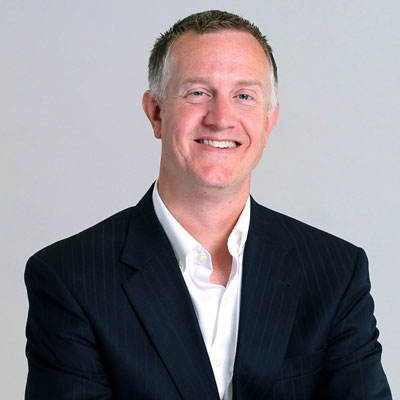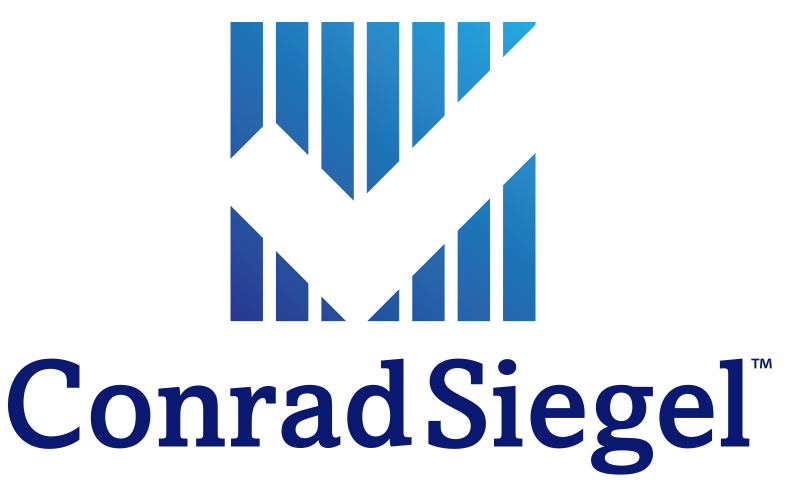PRACTICE PROFILE
Balancing white-glove service with rapid growth
Tracy S. Burke of Conrad Siegel Investment Advisors Inc.
By Bridget McCrea

With client education playing such a significant role in the financial planning profession, it makes sense that someone with a formal teaching background would be a shoo-in for a role as a fee-only planner. After all, these professionals typically contribute to their clients’ financial, family, and personal lives by helping them navigate complexities, make good choices, and learn about new opportunities.
For Tracy S. Burke, partner and investment consultant at Conrad Siegel Investment Advisors Inc. in Harrisburg, PA, switching careers from high school teacher to fee-only planner didn’t mean he’d leave education behind. He brings those skills to his new profession with the same dedication and a different focus that he says is very much needed.
“I enjoyed teaching and working with students, but I really wanted to control my own destiny,” says Burke, who also wanted to help others gain a better understanding of personal finance—something that’s not typically taught in schools.
“I saw a lot of people making what I considered to be simple mistakes,” says Burke. “As I got to know a few financial planning professionals and investment managers, my interest in the field grew.”
Taking a different route
Burke’s journey into the financial planning profession started at Vanguard as a client relationship associate, 2006–2007. In 2008, he joined Conrad Siegel to help lead and build the business’s wealth management arm. “As teachers, we take psychology courses and try to be ‘people persons,’ which I think had a major positive impact on what I’m doing now,” says Burke, who sees college psychology degrees as a viable avenue into the financial planning profession.
“Most new planners have some type of finance degree,” he continues, “but someone we interviewed recently has a psychology degree and has successfully transferred those outside skills into our profession.”
Moving into wealth management
Founded in 1963 as an actuarial firm, Conrad Siegel added Conrad Siegel Investment Advisors (the RIA arm of the overall firm) in 2002. Fee-only from the start, the investment advisory group’s mission came from its founder’s intent to provide transparent services to Conrad Siegel’s original pension clients.
Initially, the investment advisory group focused solely on institutional investors. Burke says the company’s foray into wealth management came about five years later in response to client demand for such services. “We had some institutional clients telling us, ‘Hey, we love what you’re doing on our 401(k) or pension platform,’” Burke explains, “and we have some other assets in our IRAs or other vehicles that we’d like you to manage for us.”
Today, the company has 115 employees, 20 of whom work for the investment advisory group, which includes both institutional and wealth management practices. The investment advisory group has about 350 clients and $7.8 billion in assets under management. As the fastest-growing division in the company, wealth management has driven Conrad Siegel’s increased focus on serving as a holistic financial planner and investment advisor to clients (versus being primarily investment focused).
Learning from each other
Today, most of Conrad Siegel’s clients have investable assets exceeding $2 million, and most of them come to the firm looking for fee-only planning advice and fiduciary support. In some cases, those new clients need a quick education on the differences between the various financial planning approaches. As a former teacher, Burke is always happy to explain what NAPFA-style financial planning is all about.
“We still find that a lot of people don’t know what the differences are between fee-only/fiduciary and the rest of the financial planning world,” Burke points out. “In the end, most people are seeking unbiased, objective advice that focuses on them and that isn’t just trying to sell them something.”
Long-term investment approach
Long-term investors who practice broad portfolio diversification, Conrad Siegel’s advisors rely on an academic research-based approach that primarily uses mutual funds and exchange-traded funds. Some of its clients have individual legacy holdings, but, in most cases, their money is invested in opportunities that add value through some type of long-term premium.
“We used factor-based investing, a more recent term that basically means focusing on more value-style and smaller-size on the equity side—plus broad diversification,” says Burke. “We’re not stock pickers or market timers; we take a long-term approach.”
That approach seems to be working well for Conrad Siegel, whose wealth management division is currently “growing in leaps and bounds,” according to Burke. Keeping up with and managing that growth can be challenging, he adds, particularly for a firm that’s known for its white-glove service.
“Our clients have grown accustomed to our high-touch services, so, as we continue to grow, we’re also working to stay ahead of the game in terms of hiring new staff members and getting them up to speed quickly,” says Burke. “We’re continuously adding people to our team, promoting from within, and then hiring replacements as needed. That’s all become more difficult in today’s labor environment.”
An eye on balanced growth
Despite staffing challenges, Conrad Siegel is continuing on its “fast and furious” growth trajectory and is expecting more of the same for the rest of 2022 and into 2023. The company hired a consultant to provide an outside viewpoint on its growth, help the firm position itself for what’s ahead, and suggest different strategies for managing the growth.
“Looking forward, we’re expecting continued, high-impact growth,” says Burke. “Our focus has always been on clients, so we definitely don’t want to grow any faster than we can ramp up and hire. Ultimately, our top priority is being fiduciaries, helping more people, and really trying to make a difference in their lives.”
Financial literacy outreachSince 2020, Conrad Siegel has been partnering with The Actuarial Foundation, a 501(c)(3) philanthropic organization that promotes lifelong math education and financial literacy. The foundation’s mission is to enhance math education and financial literacy through the talents and resources of actuaries. Tracy S. Burke says Conrad Siegel’s roots as an actuarial firm led it to get involved with the foundation, which supports math tutoring at local, disadvantaged schools. “Over a three-year period (2020–2023), we’ve committed substantial dollars and a lot of volunteer hours to the foundation,” he explains. “We allocate those resources to The Actuarial Foundation, which then runs the nuts and bolts of the program.” Conrad Siegel also provides the tutors who visit the local schools. In recent years, the company paired up with the foundation to bring the national Math Motivators Tutoring Program to Harrisburg schools. Math Motivators is a national program that cultivates better math understanding skills for middle and high school students. A pilot program in 2021 paired five local students with math tutors, and it will be expanded this year. The schools are changed annually to reach a broader audience of students. Burke says the current school has been particularly responsive to the tutoring support and that program is going well. The firm’s financial literacy outreach doesn’t end there. Two years ago, Conrad Siegel created a scholarship to support and encourage minority students to pursue college math and finance degrees. The company will distribute the first round of scholarships in 2022 by finding applicants from local disadvantaged schools who want to pursue a finance or math major. It will then award the scholarships based on certain eligibility parameters. |
Conrad Siegel Investment Advisors Inc.,
at a glance
Location: Harrisburg, PA
Website: conradsiegeladvisors.com
Year founded: 1963 overall firm; 2002 investment advisory division
Number of staff: 20
Number of clients: 350
Amount of money managed: $7.8 billion
Description of typical clients: High-net-worth clients with investable assets of $2 million or more in wealth management practice. Institutional arm serves defined contribution, defined benefit, and fiduciary oversight clients.
Typical client needs: Holistic financial planning and unbiased, objective advice that focuses on the client.
Favorite financial planning website or app: Kitces.com
Favorite nonfinancial planning app: ESPN app
Piece of advice to fellow NAPFA members: “The best thing that we as a profession can do is really focus on the value and the service that we give to our clients. Our fee is not about the asset management part of the business; it’s about the value and the service we give to clients. We also have to strike that balance between being efficient, using technology, and scaling the practice, while also delivering the most value we can to clients and serving as fiduciaries. That’s what our main goals should always be.”
